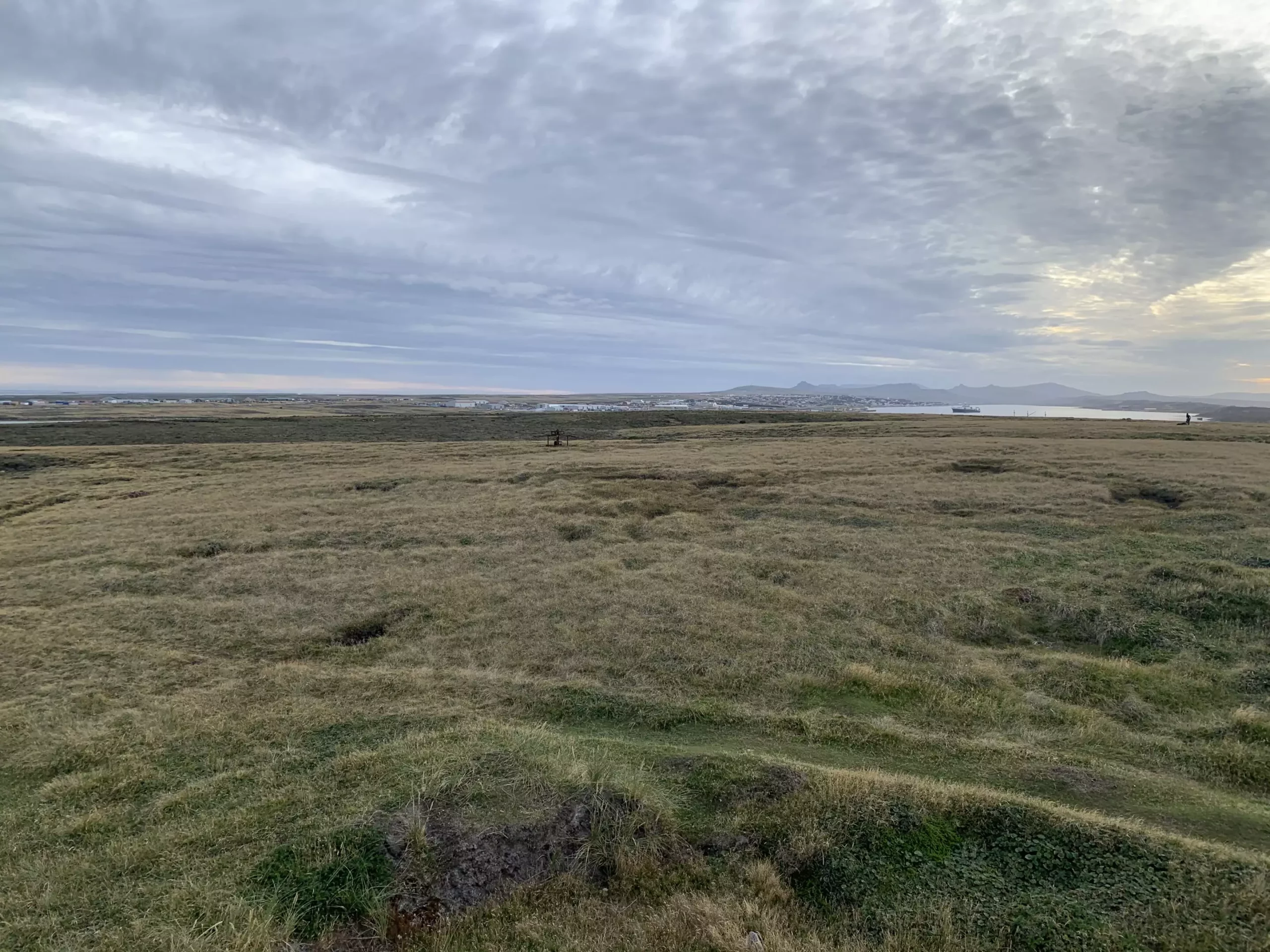Recent research led by Dr. Zoë Thomas from the University of Southampton has unveiled a remarkable historical narrative about the Falkland Islands, an area currently characterized by its treeless and rugged landscape. This research discloses that these islands, situated in the South Atlantic, were once enveloped in diverse rainforests millions of years ago. The findings, published in the journal Antarctic Science, shed light on the significant climatic shifts that the region experienced over the millennia, transforming a lush environment into the barren grasslands we see today.
Dr. Thomas and her team embarked on this enlightening journey after serendipitously encountering information about ancient tree remnants during casual conversations in Port Stanley, the archipelago’s capital. This incident emphasizes the importance of community engagement in scientific discovery, illustrating how informal exchanges can lead to profound revelations about our planet’s history.
In early 2020, while conducting research for an unrelated project, Dr. Thomas learned from a local researcher about intriguing excavations near a construction site for a care home in Stanley. Workers had uncovered large, perfectly preserved tree trunks and branches deposited within a deep peat layer—an unexpected finding considering the prevailing environmental conditions that have rendered tree growth impossible for millions of years. The preservation state of these ancient remains suggested they had only recently been embedded in peat, while, in fact, they date back between 15 and 30 million years.
This discovery raises vital questions about the climatic history of the Falkland Islands. Dr. Thomas highlighted the peculiarity of finding tree remains on an island where, for countless generations, wind and acidic soil have inhibited arboreal life. These remarkable discoveries were vital not only to the historical narrative of the island but also to the broader understanding of ecological changes in the Southern Hemisphere.
Following the discovery, the team collaborated with the South Atlantic Environmental Research Institute (SAERI) to extract samples from the excavation site. The peat deposits were carefully transported to the University of New South Wales in Australia, where advanced laboratory techniques were employed to analyze the wood and sediment. However, attempting radiocarbon dating proved inconclusive, compelling the scientists to utilize pollen analysis instead. This innovative approach allowed them to date the tree remains accurately, unlocking insights into the ecological dynamics of the ancient forest.
Pollen spores found alongside the wood offered a tantalizing glimpse into the past, as they were meticulously analyzed to construct a picture of the rich biodiversity that once thrived in the region. The research indicated that many of the species that populated this rainforest are now extinct, leading to further questions about their origins and the ecological networks that existed between these long-vanished forests and contemporary environments.
Analyzing the findings regarding the historical climate of the Falklands reveals that tens of millions of years ago, the region experienced a warmer and more humid climate, conducive to supporting a vibrant rainforest ecosystem. This ecosystem would likely have been distinct from the tropical rainforests often associated with biogeographical richness, like the Amazon. Instead, the ancient Falkland rainforest might have shared characteristics with the cool, temperate forests of modern Tierra del Fuego.
The potential causes of the ecological transition from rainforest to the current peatland-dominated landscape remain speculative, but Dr. Thomas and her colleagues suggest that climate change played a pivotal role. An increasing shift toward cooler and drier conditions may have led to the extinction of native tree species and the eventual transformation of the landscape. Such profound environmental changes serve as a reminder of the fragile balance of ecosystems and the lasting impacts of climatic shifts.
Dr. Thomas’s reflections highlight the importance of community interaction in scientific inquiry. The chance conversations with the local population not only led to the recovery of invaluable specimens but also emphasize the critical role that local knowledge and connections can play in advancing scientific research. By engaging with the friendly islanders, the research team found new doors into understanding the environmental history of the Falkland Islands, specifically an era characterized by rich biodiversity and a drastically different climate.
As this research illustrates, our understanding of ecological and climatic histories relies heavily on collaborative efforts and fortunate discoveries. The ancient forest remains found on the Falkland Islands have opened avenues for ongoing investigation, enriching both our appreciation of the past and our understanding of the significant transformations that have shaped the present-day landscape. The findings are a poignant reminder that there are still secrets to uncover beneath our feet, waiting for the curious and the dedicated to reveal their stories.


Leave a Reply